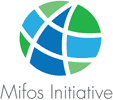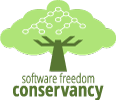Schedule: Kubernetes sessions
9:00am - 5:00pm Monday, July 16 & Tuesday, July 17
Location: F151
 Ryan Schneider (VMware)
Ryan Schneider (VMware)
Average rating:





(4.00, 4 ratings)
Ryan Schneider demonstrates how to build out a distributed system from ideation to production. You'll learn the essentials needed to develop a highly available and fault-tolerant architecture and gain insight into the practicalities of transitioning to this type of application architecture the right way.
Read more.
1:30pm–5:00pm Monday, July 16, 2018
Location: C123/124
Level: Intermediate
 Josh Berkus (Red Hat)
Josh Berkus (Red Hat)
Average rating:





(4.00, 5 ratings)
Over the last year, it has become not only possible but also compelling to run many of your database workloads on Kubernetes—and it's simpler than you think. Join Josh Berkus to learn how to build and configure your own high-availability, containerized database application stack using Postgres, Patroni, and OpenShift.
Read more.
9:00am–12:30pm Tuesday, July 17, 2018
Location: Portland 251/252
Level: Beginner
 Bridget Kromhout (Microsoft)
Bridget Kromhout (Microsoft)
Average rating:





(3.45, 20 ratings)
It is a truth universally acknowledged that a techie in possession of any production code whatsoever must be in want of a container orchestration platform. What's up for debate, according to noted thought leader Jane Austen, is how many pizzas the team is going to eat. Join Bridget Kromhout to learn how to create and operate a Kubernetes cluster in order to answer this crucial question.
Read more.
9:00am–12:30pm Tuesday, July 17, 2018
Location: Portland 256
Level: Beginner
 Fred Moyer (Zendesk)
Fred Moyer (Zendesk)
Average rating:





(3.00, 2 ratings)
Do you have a real understanding of the performance of your new Kubernetes service, or do you just know what the average user is seeing? Fred Moyer explains how to get a comprehensive understanding of your Kubernetes infrastructure with a little math and an Istio service mesh implementation for your container-based infrastructure.
Read more.
1:30pm–5:00pm Tuesday, July 17, 2018
Location: D135/136
Level: Intermediate
 Christian Posta (solo.io)
Christian Posta (solo.io)
Average rating:





(3.00, 1 rating)
Service mesh is getting a lot of attention, but for developers, this technology may seem a bit too magical. Christian Posta offers a pragmatic, hands-on approach to understanding service mesh and the Istio architecture, covering how the various pieces work and how they work together to deliver powerful resilience, security, and control over your microservices.
Read more.
11:00am–11:40am Wednesday, July 18, 2018
Location: E141
 Xing Yang (Huawei)
Xing Yang (Huawei)
Imagine that your storage hosting the persistent volumes serving your Kubernetes cluster is damaged by a fire. How do you recover from such a disaster? Xing Yang shares strategies for protecting critical data, using OpenSDS—an open source software-defined storage project under the Linux Foundation—OpenSDS's array-based and host-based replication feature, and policy engines.
Read more.
11:00am–11:40am Wednesday, July 18, 2018
Location: E147/148
Animesh Singh, Atin Sood, and Tommy Li demonstrate how to leverage Fabric for Deep Learning to execute distributed deep learning training for models written using multiple frameworks, using GPUs and object storage constructs. They then explain how to take models from IBM's Model Asset Exchange, train them using FfDL, and deploy them on Kubernetes for serving and inferencing.
Read more.
11:50am–12:30pm Wednesday, July 18, 2018
Location: D135/136
Level: Beginner
 Jessica Deen (Microsoft)
Jessica Deen (Microsoft)
Average rating:





(4.73, 11 ratings)
Helm is a tool that streamlines installing and managing Kubernetes applications; it’s like Homebrew for Kubernetes, but it's also so much more. Jessica Deen shows you how to use standard DevOps practices such as IaC, CI/CD, and automated release in conjunction with Kubernetes (AKS) and Helm.
Read more.
11:50am–12:30pm Wednesday, July 18, 2018
Location: E147/148
Level: Beginner
 Adib Saikali (Pivotal)
Adib Saikali (Pivotal)
Cloud Foundry BOSH makes it easy to deploy and maintain Kubernetes clusters on any IaaS, private or public. Adib Saikal offers a technical overview of the Pivotal Container Service (PKS), covering its architecture and how it leverages BOSH to deliver Kubernetes cluster demand. You'll see just how easy it is to use PKS and BOSH to maintain your Kubernetes clusters.
Read more.
2:35pm–3:15pm Wednesday, July 18, 2018
Location: D135/136
Level: Intermediate
 Ilan Rabinovitch (Datadog)
Ilan Rabinovitch (Datadog)
Average rating:





(1.00, 1 rating)
Ilan Rabinovitch leads a deep dive into monitoring the world's Kubernetes clusters and shares lessons learned along the way.
Read more.
4:15pm–4:55pm Wednesday, July 18, 2018
Location: D135/136
Level: Intermediate
 Christian Posta (solo.io)
Christian Posta (solo.io)
Average rating:





(4.50, 2 ratings)
Christian Posta leads a deep dive into Istio, an open source service mesh with a growing community of users and contributors. You'll learn how Istio works and how to debug issues as you take a step-by-step walkthough of Istio's components.
Read more.
11:00am–11:40am Thursday, July 19, 2018
Location: D137/138
Level: Beginner
 Nilesh Patel (IBM )
Nilesh Patel (IBM )
Average rating:





(2.00, 1 rating)
Kubernetes has quickly become the hybrid solution for deploying complicated workloads anywhere. Recently, customers have begun to move complex workloads to the platform, taking advantage of rich APIs, reliability, and performance. Nilesh Patel explains how to use Kubernetes as a platform to run machine learning apps, using Kubeflow, a new open source project launched by Google.
Read more.
2:35pm–3:15pm Thursday, July 19, 2018
Location: D137/138
Level: Beginner
 Cullen Taylor (IBM)
Cullen Taylor (IBM)
Cullen Taylor offers an overview of the open source application Rotisserie, which applies the concept of the red zone in American football to the popular online battle royal game PlayerUnknown's Battlegrounds (PUBG) with the goal of always viewing the most popular PUBG Twitch stream with the least amount of people alive in game.
Read more.
4:15pm–4:55pm Thursday, July 19, 2018
Location: Portland 251
Level: Beginner
Average rating:





(4.00, 1 rating)
Istio’s Pilot consumes information from a service registry, which Istio uses to set up routing rules, policies, and circuit breaking, and provides a platform-agnostic service discovery interface. Christopher Luciano and Nimesh Bhatia explain how a Pilot adaptor for Consul or Eureka can use Envoy proxies to route and monitor applications that are running outside of Kubernetes.
Read more.
Premier Diamond Sponsors
Diamond Sponsors
Elite Sponsor
Rhodium Sponsor
Gold Sponsors
Silver Sponsors
Supporting Sponsors
Premier Exhibitors
Exhibitors
Innovators
Non-Profit Exhibitors
Sponsorship Opportunities
For exhibition and sponsorship opportunities, email oscon@oreilly.com
Partner Opportunities
For information on trade opportunities with O'Reilly conferences, email partners@oreilly.com
Contact Us
View a complete list of OSCON contacts
©2018, O'Reilly Media, Inc. • (800) 889-8969 or (707) 827-7019 • Monday-Friday 7:30am-5pm PT • All trademarks and registered trademarks appearing on oreilly.com are the property of their respective owners. • confreg@oreilly.com




























